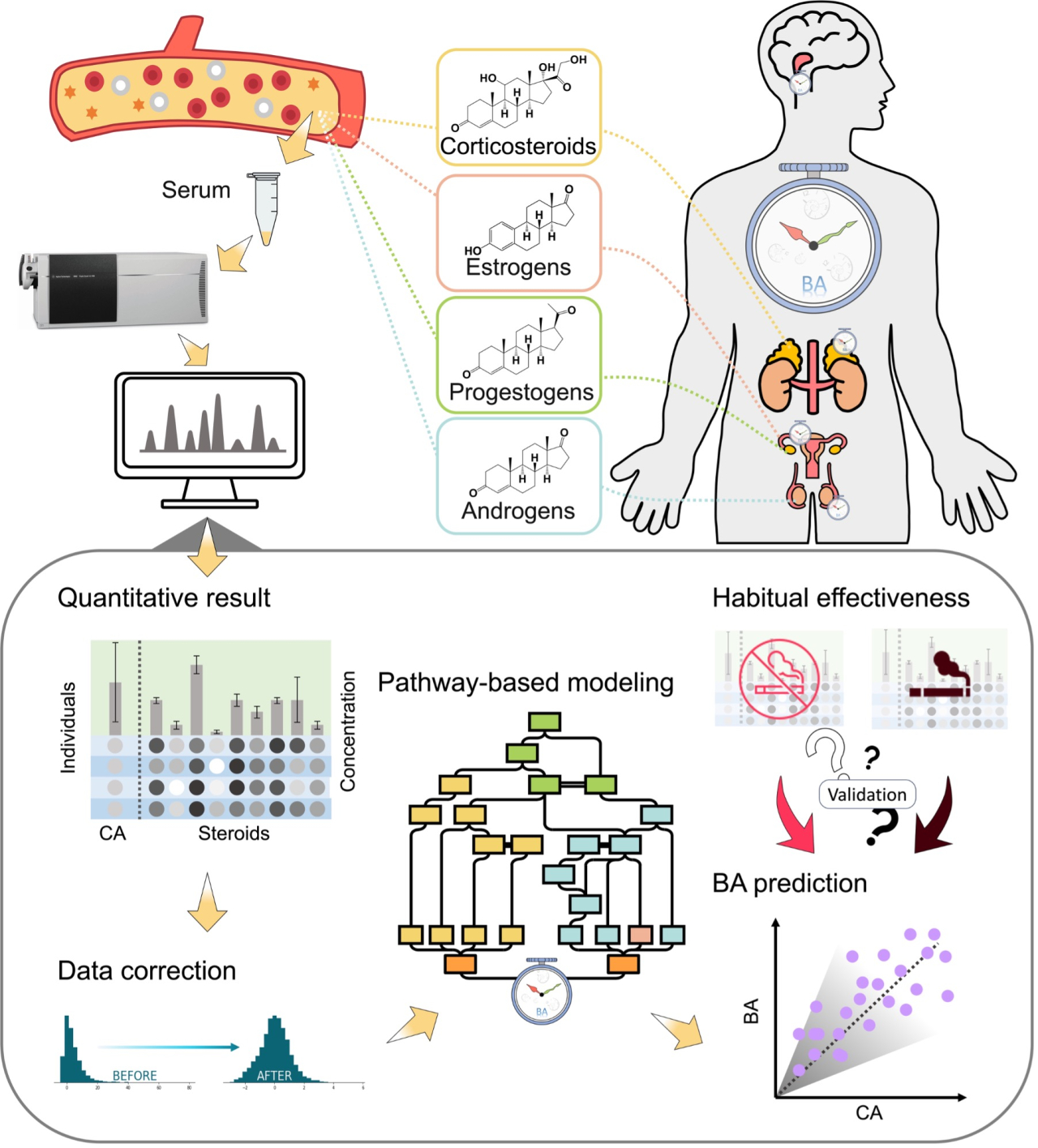P03-02
Biological Age Prediction Using a Deep Neural Network Based on Steroid Metabolic Pathways
Zi WANG *, Qiuyi WANG, Kenji MIZUGUCHI, Toshifumi TAKAO
IPR, Osaka University
( * E-mail: tokumunoboushi@yahoo.co.jp )
Aging, a multifaceted process marked by the progressive accumulation of cellular damage, necessitates a deeper understanding of biological aging mechanisms for effective intervention in age-related diseases. Previous research has established that steroid hormones, integral to a comprehensive system of physiological transformations, exhibit significant metabolic interactions. Additionally, stress-related corticosteroid hormones and sex hormones have been found to strongly correlate with the degree of physiological aging. Consequently, utilizing steroid hormone interactions for BA estimation offers a more accurate and comprehensive approach. In this study, we introduce a novel method for BA prediction by developing a DNN model based on steroid metabolic pathways for both sexes. The model was constructed using 22 steroid profiles derived from 98 individual serum samples, analyzed with an in-house Liquid Chromatography-Mass Spectrometry/Mass Spectrometry (LC-MS/MS) method known for its high sensitivity and precision. To ensure the robustness and reliability of our models, we applied a rigorous data correction method to eliminate experimental batch effects and individual physiological variations, and tested the model on an additional 50 serum samples. Our approach provides deeper insights into aging heterogeneity and biological processes by developing a pathway-based DNN model that accounts for the expansion of aging heterogeneity over time and the biological interpretability of molecular interactions. By examining differences in metabolic pathways between sexes, we highlight the distinct effects of stress-related and sexual steroids on BA. Furthermore, our findings suggest that smoking habits may influence the BA of males, primarily through their impact on stress-related steroids. This study offers a more nuanced understanding of the aging process and holds promise for more accurate and comprehensive BA predictions compared to traditional methods.
